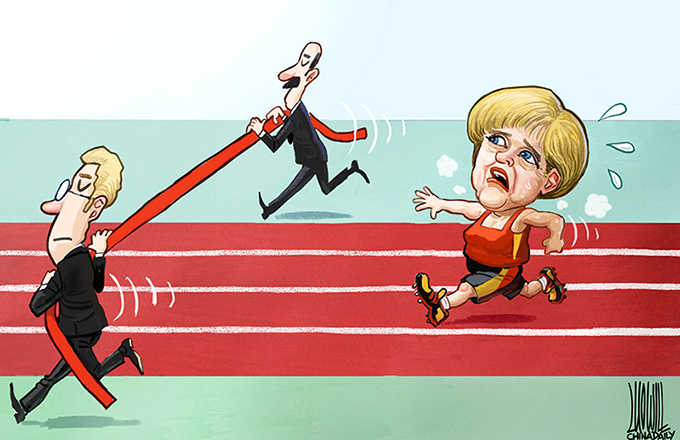Appeal of bling dims
Brands must raise their game if they want to win over China's growing number of middle-class consumers
Purse strings are tightening in China as the economy cools, which is hardly good news for those overseas luxury brands that have been banking on selling the signifiers of status and an upwardly mobile lifestyle to Chinese consumers. However, it is likely to be only a short-term setback.
Although the number of middle-class buyers of luxury goods in China has grown from 1 million in 1995 to 37 million today, many of them are expected to stop spending on luxury items now the country's economic growth has slowed.
In January, the consulting company McKinsey estimated that the annual consumption growth in China will be between 12 to 16 percent a year from now on, down from around 20 percent in recent years. Another survey, carried out by Bain and Company, even predicts a drop to 6 to 8 percent this year.
Gucci, which is owned by PPR, is the latest luxury brand to report slower sales growth in China, and its disappointing performance - disappointing in that it didn't meet the high expectations - was echoed by other brands under the PPR umbrella. The LVMH group, which owns many luxury brands, such as the popular Louis Vuitton and Bulgari, recently announced its earnings report for the first quarter of 2013, showing year-on-year growth of only 6 percent, a huge drop from the 25 percent for the same period last year. Moreover, Hermes has also said sales in China have cooled, while Cartier quietly closed 10 stores in China last year.
However, their falling sales are not just a result of China's economic slowdown, the government's crackdown on extravagance and graft has also hit sales of luxury goods in China. Business gifts, mainly for men, used to account for 20 to 30 percent of the total luxury goods consumption in China.
However, with the government's crackdown on officials receiving gifts, this segment has fallen off dramatically, and the luxury brands will need to focus more attention on female consumers and seek to increase their brand loyalty and service levels to compensate for the lost gift-giving revenue. Besides, huge and obvious logos are no longer welcome attention-grabbers for officials, thanks to the online fighters against corruption. But this will be a good change since the consumption growth will be led by the more sustainable demand of individuals consuming more lower-cost items rather than a small number of sales of higher-cost items.




















